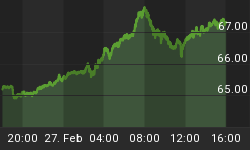Why read: Because if you think about it, this can be argued to offer a suggestion (and a warning) of how much at risk the so-called 'systemic country economies' currently are.
Commentary: The International Monetary Fund has, in a report titled 2012 Spillover Report, attempted to quantify potential world effects that may arise from economic difficulties faced by China, the Eurozone, Japan, the United Kingdom and the United States. These countries are referred to as the five 'systemic economies'. I have taken 'systemic' to mean the 'most cross-linked', and hence those most susceptible to 'contagion' if one or more serious economic events or problems arises going forward.
The IMF seems to think that if the European Union authorities don't 'act in time', Eurozone growth will be negatively impacted by 5%, the U.S. growth by about 2%, and growth for the other three by between 0.5% - 2.5%. That leads, or so I think, to the following important questions:
-
what does 'act in time' mean in the context of elapsed time? Weeks, months, or years - or, perish the thought, has 'act in time' come and gone already?; and,
-
how credible are the IMF assumed results? What precisely did the IMF account for? How have they specifically integrated 'derivatives issues', when no one seems to know the U.S.$ value of aggregate outstanding derivatives? And so on?
Intuitively, I suspect the IMF's conclusions are 'inadequate on the low side' if there ever proves to be serious contagion issues. I also think that politicians in the Eurozone and America have both 'left it too long', in circumstances where I believe more quantitative easing - if and when it comes - will be nothing more than a band-aid stuck on the wound created by a leg amputation.
You can link to the IMF 'spillover report' through the referenced article, and read it for yourself. Dated July 9, 2012, it is a 20 page report that strikes me as 'more than a little' academic in its approach to what has to be an extraordinarily difficult thing to analyze.
Topical Reference: How Bad Could EU Crisis Get? IMF Attempts an Answer, from The Wall Street Journal, Real Time Economics, Ian Talley, August 6, 2012 - reading time 2 minutes.















